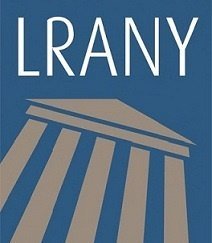Issues.
-

Wrongful Death
The issue:
The Grieving Families Act expands the state wrongful death statute, allowing more people to sue and increasing the causes of action. Businesses, hospitals, and municipalities all oppose this measure.
The solution:
We support the Governor vetoing the expansion of this detrimental legislation for a third time.
-

Staged Accidents
The issue:
New York State is grappling with a growing number of fraudulent insurance claims arising from staged construction accidents. Due to the fraud, builders face increasing insurance premiums – higher costs which are ultimately passed down to consumers.
The solution:
We support legislation that amends section 176 of the penal law to make staging a construction site accident for the purposes of insurance fraud a class E felony and regulating lawsuit lending which provides funding for the fraud.
-

Ridesharing Insurance Crisis
The issue:
Inflated settlements and jury verdicts have undermined the stability of New York’s top insurer for taxis, black cars, and ridesharing. NYC mandates drivers carry insurance coverage that’s four times higher than other parts of the state. These unnecessary mandates are a magnet for questionable lawsuits.
The solution:
Streamline insurance requirements for for-hire vehicles and put them in-line with the rest of the state.
-

Lawsuit Lending
The Issue
The practice of lawsuit lending seeks out consumers who have filed lawsuits and offer to pay them up-front money in exchange for a percentage of whatever award they may later receive in their lawsuit. Litigation financing companies prey on vulnerable consumers – people who are often injured and unable to work, with no financial support, and desperate for cash.
The Solution
LRANY supports the prohibition of lawsuit lending or strict regulation under consumer protection laws.
Image credit: © ROMAN Adobe Stock
-

Interest on Judgments
The Issue
Currently, defendants must pay interest on judgments at a fixed rate of 9%, which is significantly higher than the market rate. This rate forces defendants to settle meritless lawsuits rather than risk paying the exorbitant interest rate.
The Solution
LRANY supports legislation which ties the rate of interest on judgments to the prevailing market interest rate.
Image credit: © Shannon Fagan Dreamstime.com
-

Americans With Disabilities Act
The Issue
New York leads the nation in lawsuits alleging websites were non-compliant with the Americans with Disabilities Act. New York small businesses, art galleries, wineries, breweries, and universities have all been targeted. Most small and medium-sized businesses have no idea that their websites are not compliant.
The Solution
LRANY supports giving these organizations sixty days to fix the problem, this bill ensures that the money is spent on bringing websites into compliance, not on legal fees for law firms demanding settlements.
Image credit: © niroworld Shutterstock
-

Scaffold Law Reform
The Issue
New York Labor Law sections 240/241, commonly called the “Scaffold Law”, holds contractors and property owners absolutely liable for any elevation related injuries sustained by a worker, regardless of the worker’s own negligence. New York is the only state in the nation which still has such a law.
The Solution
LRANY supports the elimination of the Scaffold Law’s absolute liability standard and the implementation of a comparative liability standard, in which a worker’s own negligence, intoxication, or refusal to use safety equipment may be admitted as evidence in court. This would stimulate job creation, improve workplace safety, and reduce the burden on the state and its taxpayers.
Image credit: Unlicensed internet image
-

Trespasser Responsibility
The Issue
New York is one of only two states in the nation where a trespasser can sue a property owner for injuries incurred while trespassing. This backwards standard of liability threatens law abiding New Yorkers’ right to free enjoyment of their property and provides a strong disincentive for businesses to locate in the state.
The Solution
LRANY supports legislation which would prohibit trespassers from suing property owners for their injuries. The legislation provides exceptions for child trespassers and attractive nuisances such as playgrounds and swimming pools.
Image credit: © JakeWilliamHeckey Pixabay
-

Fair Share Liability
The Issue
The legal doctrine of joint and several liability is a theory which permits a plaintiff to recover damages from multiple defendants collectively or from each defendant individually. Under this doctrine, a defendant who is only one percent responsible can be forced to pay 100 percent of the damages. This leads to widespread abuse, with lawsuits targeting financially solvent parties like schools, businesses and municipalities that were minimally at fault – in the hopes of extracting an easy settlement.
The Solution
LRANY supports a full repeal of the doctrine of joint and several liability, and the implementation of “Fair Share Liability” as Florida, Texas, and other states have done. Under this doctrine, defendants are only responsible for paying the percentage of the award for which they were responsible.
Image credit: ©BillionPhotos FreePix
-

Asbestos Transparency
The Issue
Currently, the law does not require plaintiffs in asbestos actions to disclose whether they previously recovered from trust funds. Often lawyers will seek recoveries from both the tort system and the trust system alleging conflicting or even outright fraudulent claims. Lack of transparency encourages widespread abuse, stealing funds intended for the legitimately harmed.
The Solution
LRANY supports legislation which would require increased transparency for asbestos trust claims and stronger safeguards to prevent abuse of the system.
Image credit: Unlicensed internet image
-

Non-Economic Damages Reform
The Issue
Damages for non-economic losses include pain and suffering, emotional distress, loss of companionship, and other intangible injuries. Because these damages involve no direct or calculable economic loss, it is difficult for juries to assign a dollar value to these losses. As a result, these awards tend to be erratic, and often times, excessive.
The Solution
LRANY supports the rational limitation of noneconomic damages. A limit would eliminate excessive jury awards and reduce financial incentives to file frivolous lawsuits. Most importantly, such a limit would have no impact on the amount an injured person could receive for economic losses such as past and future medical bills, lost wages, future earnings, medical devices, and any other quantifiable losses.
Image credit: © Create Jobs 51 Shutterstock
-

Scientific Evidence
The Issue
New York’s standard for evidence is nearly a century old, and requires only that the methods used to support scientific theories of causation (for example, the side effects of a drug) are “generally accepted.” This outdated standard allows cases based on junk science to clog our courts.
The Solution
LRANY supports the implementation of the “Daubert standard,” which requires that theories must be based on sound scientific method. This standard has already been adopted by a majority of states and the federal court system
Image credit: © Microgen I Stock Photos
-

Trial by Ambush
The Issue
The current law in New York regarding expert disclosure requires litigants to disclose their respective experts prior to trial, but offers no definitive time frame in which the disclosure must be exchanged. Most courts throughout the state require allow this disclosure take place as late as thirty days prior to trial, making it difficult to assess the merit of a case ahead of time and leading to the widespread practice of “trial by ambush.”
The Solution
LRANY supports legislation which would require the party with the burden of proof to disclose its experts when they file the lawsuit. The opposing party would subsequently be required to disclose its experts within sixty days. This measure would correct a glaring inequality in the current system, discourage frivolous lawsuits, and promote expeditious settlements.
Image credit: © Bizoon | Dreamstime.com
-

Electronic Discovery Reform
The Issue
Discovery of electronically stored information (ESI), such as emails and electronic documents, has become increasingly common and important in civil litigation. However, because of the daunting volume of ESI, discovery can be extremely costly and time consuming, and the tactic of making broad discovery requests is increasingly being used to pressure defendants to settle even the least meritorious cases.
The Solution
LRANY supports legislation which would clarify requirements to preserve electronically stored information and implement checks on abusive electronic discovery tactics.
Image credit: Unlicensed internet image
-

Transparency in Private Attorney Contracting
The Issue
The past decade has witnessed dramatic increase in the use of private contingency fee attorneys on behalf of the state. While State use of private sector legal services makes sense in some instances, there is currently little transparency regarding the use of private sector attorneys by the State, creating a potential for abuse and conflict of interest.
The Solution
LRANY supports legislation which would create transparency, limit contingency fees, and codify recent case law requirements to ensure that the State remains in control of litigation when it hires contingency fee counsel
Image credit: © Create Jobs 51 Shutterstock
-

Appeal Bond Cap
The Issue
Oftentimes, in order to appeal a verdict a defendant must bond the entire cost of the judgment plus interest and attorney’s fees. In cases involving multi-million or billion dollar jury awards, a defendant may be unable afford the cost of this bond, effectively being denied due process of law.
The Solution
LRANY supports legislation which would cap appeal bonds at $50 million, provided the defendant is not liquidating assets or attempting to evade justice.
Image credit: © Daveallenphoto
Dreamstime.com
-

Contingency Fee Limits
The Issue
With attorneys’ fees commonly 33 percent or more of the total award, victims are left with a fraction of their total award.
The Solution
Broaden the contingency fee schedule currently in place for medical malpractice actions to all tort cases. A sliding fee schedule would ensure that the major part on the award goes to the injured victim, rather than the attorneys’ fees.
Image credit: Unlicensed internet image

